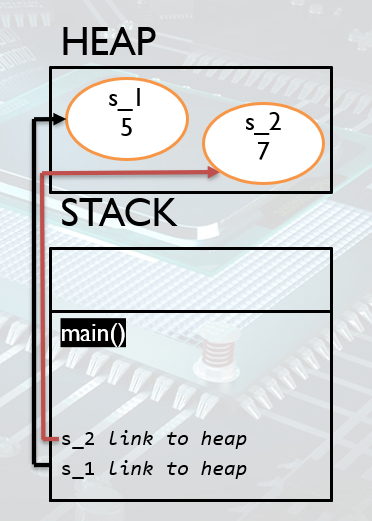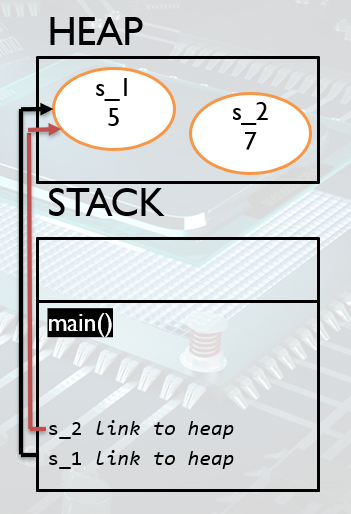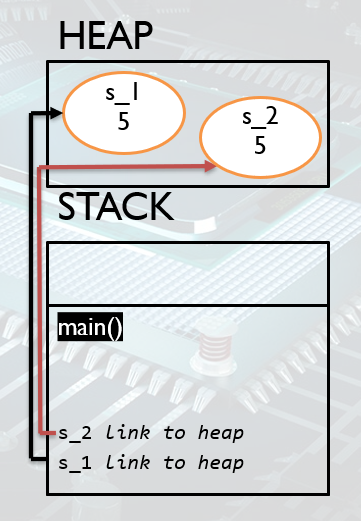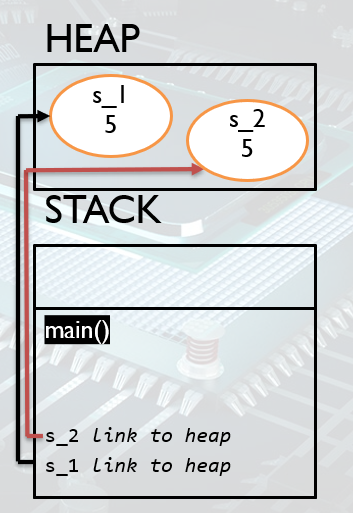Primitives Vs Objects II
Why objects and primitives different
Primitive variables are small and of known size
- They can be passed very quickly by variable
- Removed automatically with the frame
Objects vary in size - They are big and would be slow to pass around as parameters
- Their addresses can be passed quickly like primitive variables.
- Hang around in memory until garbage collection gets round to them
Primitives vs Objects
Stack
- Allocated as methods are called
- Deallocated when method exits
- Faster
- Limited in size
- Threadsafe – threads have their own stacks
Heap
- Allocated when objects are created
- Deallocated when garbage collector realises there is no link to object
- Slower
- Not limited in size
- Not threadsafe – the heap is shared
Instance vs Local Variables
public class simple
{
private int num;
public bigger(int a)
{
int b = 3;
num = a + b;
}
}
- num is an instance variable
- It is created when the object is created
- It is stored in the heap
- b is a local variable
- It is created when the method is called
- It is stored in the method frame
- a is also a local variable
- Remember the code itself is stored elsewhere in memory
Objects as “=”
public main()
{
simple s_1 = new simple(5);
simple s_2 = new simple(7);
}

Objects as “=”
public main()
{
simple s_1 = new simple(5);
simple s_2 = new simple(7);
s_2 = s_1;
}
- Assigning one object to another copies the link not the object

Cloning an object
public main()
{
simple s_1 = new simple(5);
simple s_2 = (simple) s_1.clone();
}
- Most Java classes come with a method called clone()
- This method returns a new object with the same values as the object is is called on
- You would need to create your own clone method for your own classes

Objects - Testing Equality
public main()
{
simple s_1 = new simple(5);
simple s_2 = new simple(5);
if (s_1 == s_2)
…
}
- This will fail, it will compare the two memory addresses and they will be different

Objects - Testing Equality
public main()
{
simple s_1 = new simple(5);
simple s_2 = new simple(5);
if (s_1.equals(s_2))
…
}
- This will succeed
- Most Java classes implement equals()
- You will need to implement equals for your own classes
- Instructions on doing this
